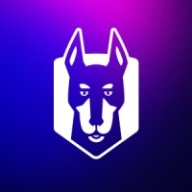

Snyk and GitHub Advanced Security provide market-leading security solutions for software development environments. Snyk stands out with its simplicity and ease of integration, whereas GitHub Advanced Security excels with deep integration within the GitHub ecosystem.
Features: Snyk is known for its ease of integration with tools like Slack, offering support for an extensive range of programming languages and integrations, which makes it adaptable across diverse development settings. It provides developers with efficient ways to discover and resolve vulnerabilities, thus enhancing productivity. GitHub Advanced Security, however, benefits from its seamless integration within GitHub, enhancing CI/CD workflows and leveraging the CodeQL engine for customizable queries that elevate security analysis and reporting.
Room for Improvement: Snyk users suggest the need for extended language support, improved license compliance features, and the addition of static analysis functions. Its notification filtering could be refined, and it should address issues around plugin friendliness and false positive reduction. GitHub Advanced Security could broaden its programming language support and improve reporting capabilities, with users seeking more integration options and enhanced customization for specific security requirements.
Ease of Deployment and Customer Service: Snyk offers a flexible deployment model across private, public, hybrid clouds, and on-premises, earning praise for proactive technical support, though with noted areas for responsiveness enhancement. GitHub Advanced Security is effective in deployment across varied environments, particularly valued for its strong integration within GitHub, and is recognized for competent, communicative, and efficient customer support.
Pricing and ROI: Snyk's competitive pricing model, based on developer count, is considered a good value owing to its extensive features, although it is perceived as costly by some. The ROI is compelling for its efficiency in vulnerability management. GitHub Advanced Security is seen as expensive, often considered a cost barrier, but its comprehensive features and deep integration justify the expense for many, with ROI largely seen in enhanced developer productivity and security improvements.
| Product | Market Share (%) |
|---|---|
| Snyk | 5.6% |
| GitHub Advanced Security | 4.3% |
| Other | 90.1% |


| Company Size | Count |
|---|---|
| Small Business | 1 |
| Midsize Enterprise | 4 |
| Large Enterprise | 7 |
| Company Size | Count |
|---|---|
| Small Business | 21 |
| Midsize Enterprise | 9 |
| Large Enterprise | 21 |
GitHub Advanced Security secures data by scanning for vulnerabilities in dependencies, secret scanning, and protecting sensitive information. It integrates seamlessly, reducing reliance on multiple tools and optimizing vulnerability detection.
GitHub Advanced Security is designed to enhance security awareness by offering comprehensive tools for secret scanning, code analysis, and SCSS dependency checks. AI-driven features deliver accurate security insights while minimizing false positives. It provides valuable integration with Azure DevOps, maintaining control within dashboards and enabling external systems' support through APIs. With CodeQL, users can perform custom queries across projects. Propelled by Microsoft, the platform enhances operational frameworks with essential security features, although improvements are needed in dashboard consolidation, reporting, and integration mechanisms. Users seek better customizability, language support, and training resources to ensure smoother implementation.
What are the key features of GitHub Advanced Security?Industries implement GitHub Advanced Security to maintain robust security standards. It is favored by technology sectors seeking seamless integration with Azure DevOps and looking for customizable security tools tailored to project needs. Financial institutions value its accurate threat detection and compliance support, while enterprises focus on its comprehensive dependency scanning and code analysis capabilities to safeguard critical assets. The adaptability of GitHub Advanced Security across different operational environments illustrates its practical benefits.
Snyk excels in integrating security within the development lifecycle, providing teams with an AI Trust Platform that combines speed with security efficiency, ensuring robust AI application development.
Snyk empowers developers with AI-ready engines offering broad coverage, accuracy, and speed essential for modern development. With AI-powered visibility and security, Snyk allows proactive threat prevention and swift threat remediation. The platform supports shifts toward LLM engineering and AI code analysis, enhancing security and development productivity. Snyk collaborates with GenAI coding assistants for improved productivity and AI application threat management. Platform extensibility supports evolving standards with API access and native integrations, ensuring comprehensive and seamless security embedding in development tools.
What are Snyk's standout features?Industries leverage Snyk for security in CI/CD pipelines by automating checks for dependency vulnerabilities and managing open-source licenses. Its Docker and Kubernetes scanning capabilities enhance container security, supporting a proactive security approach. Integrations with platforms like GitHub and Azure DevOps optimize implementation across diverse software environments.
We monitor all Application Security Tools reviews to prevent fraudulent reviews and keep review quality high. We do not post reviews by company employees or direct competitors. We validate each review for authenticity via cross-reference with LinkedIn, and personal follow-up with the reviewer when necessary.